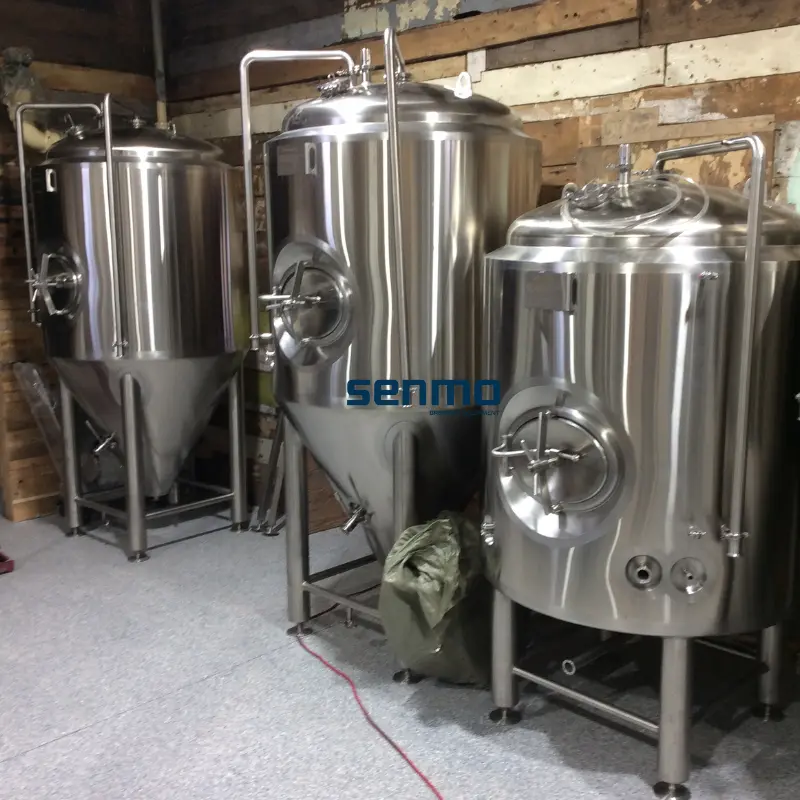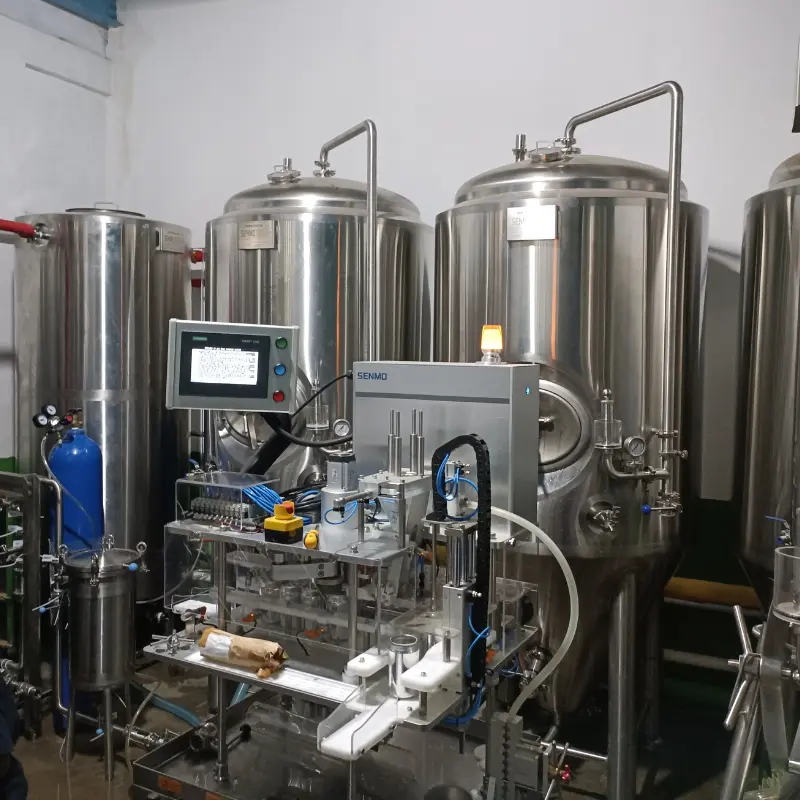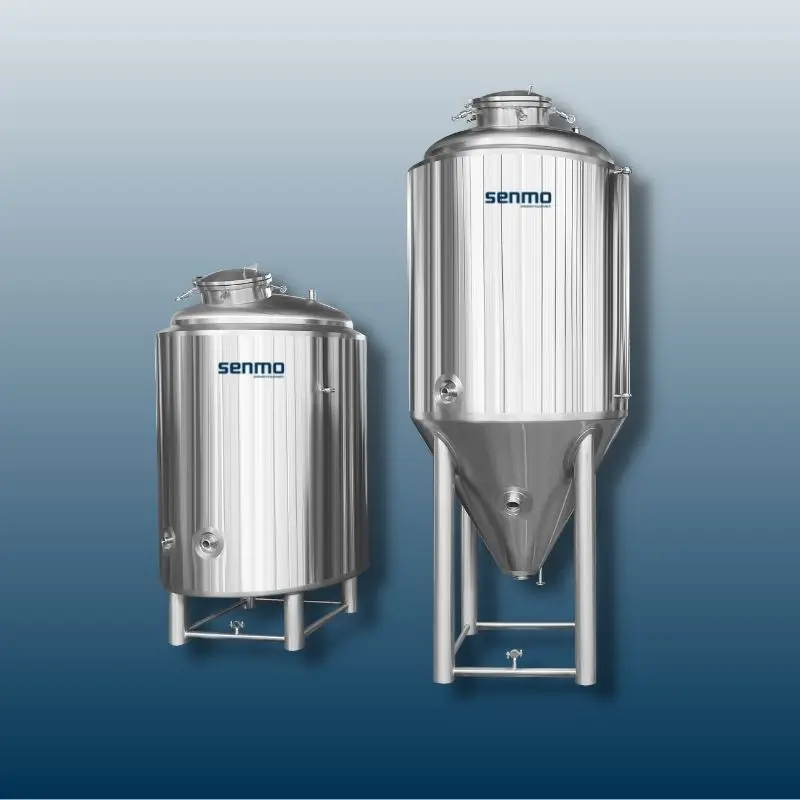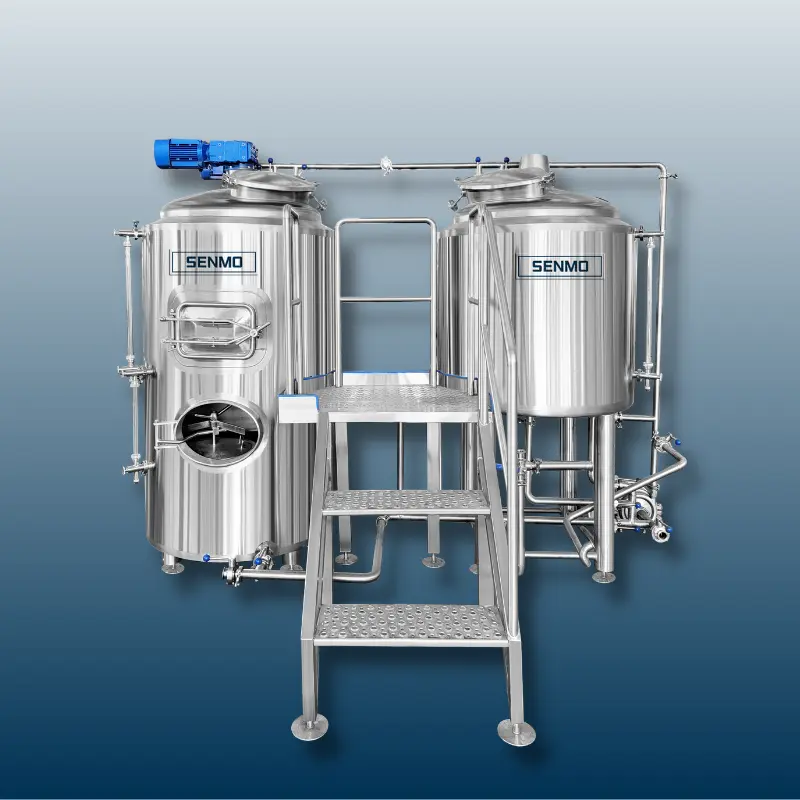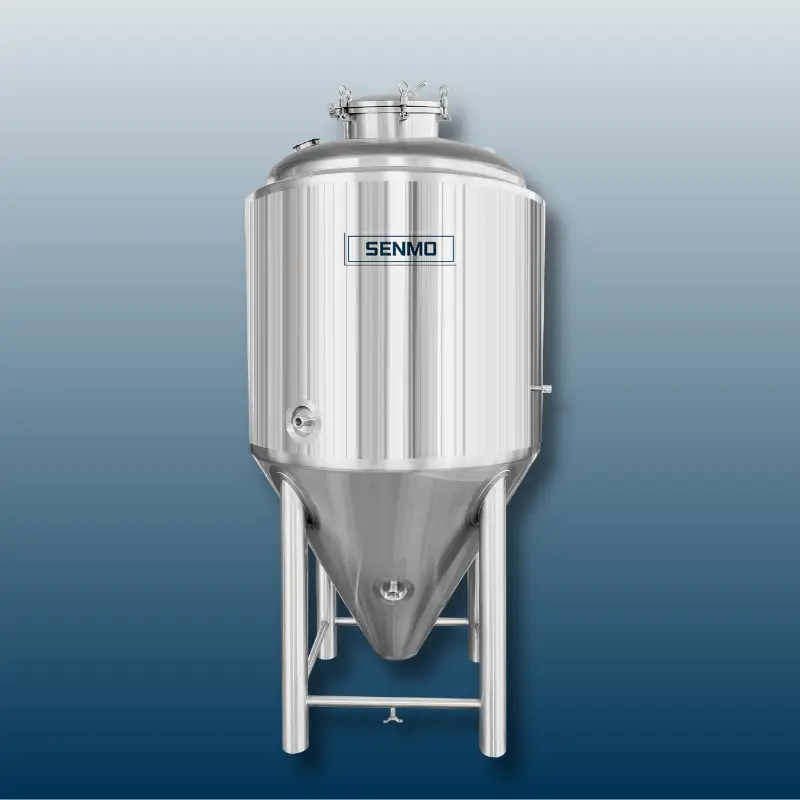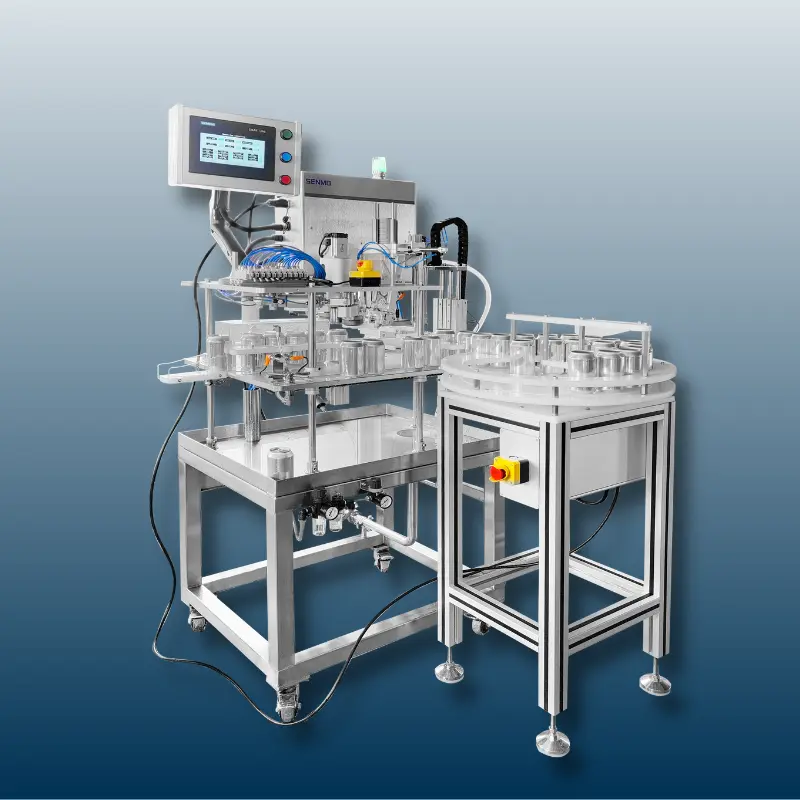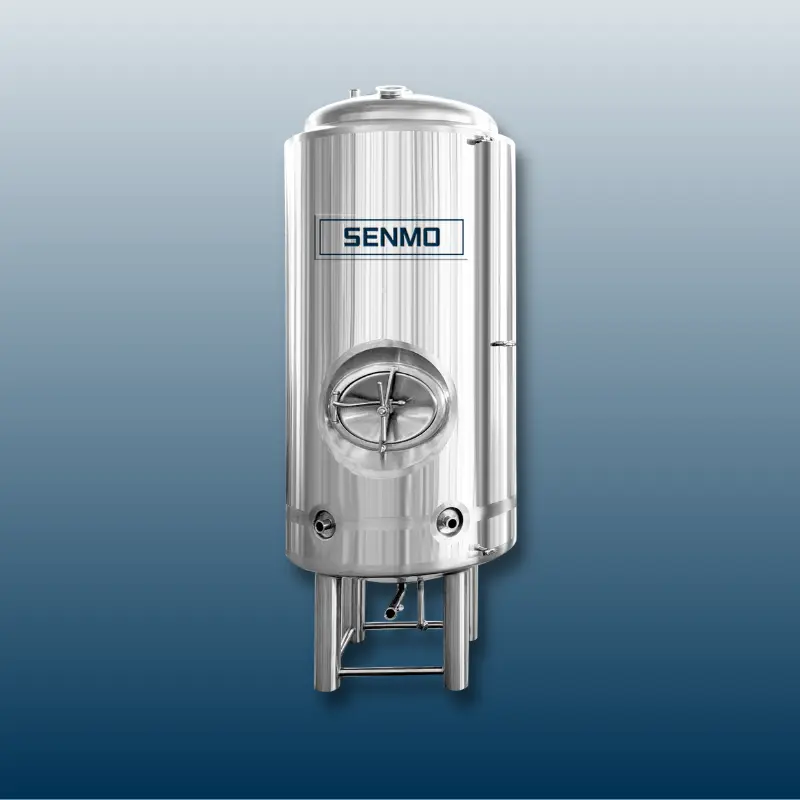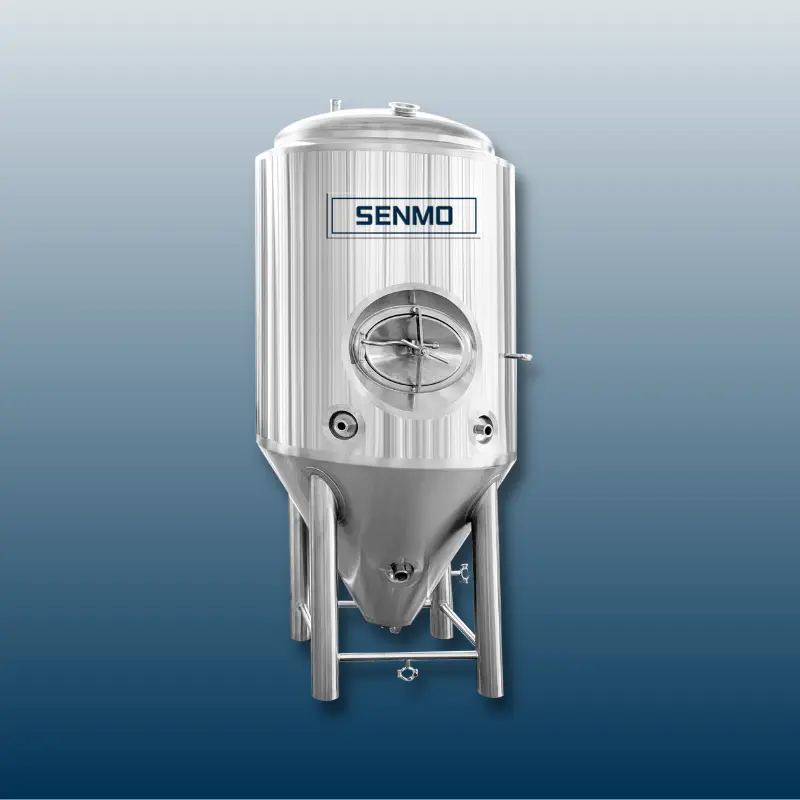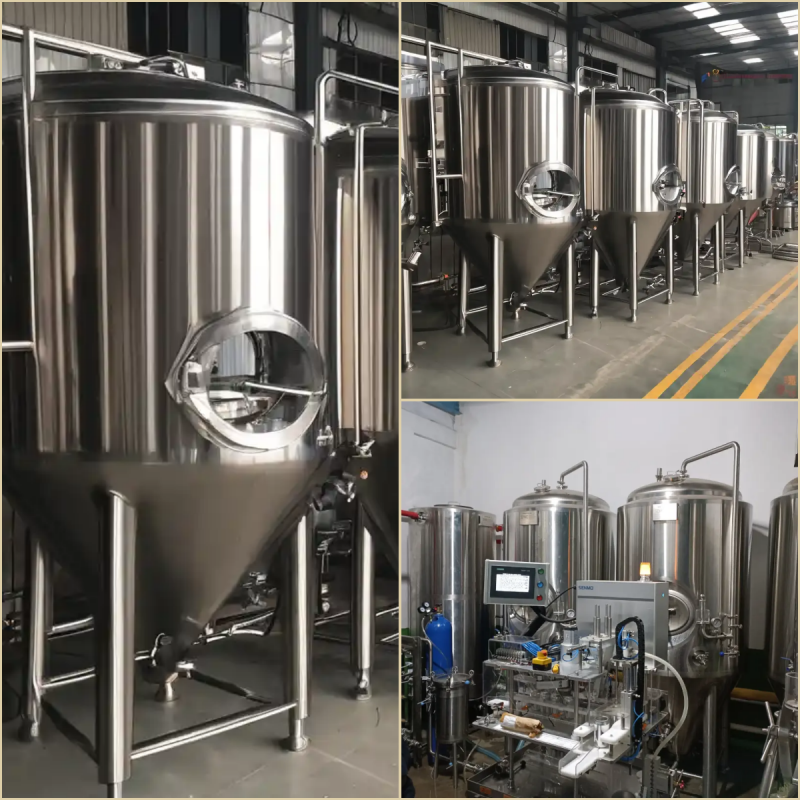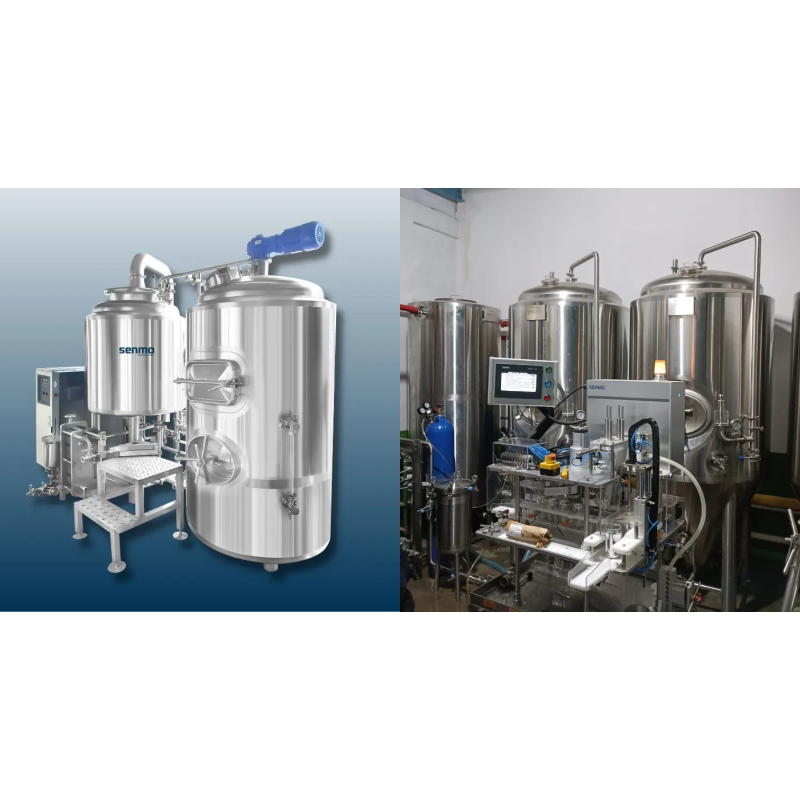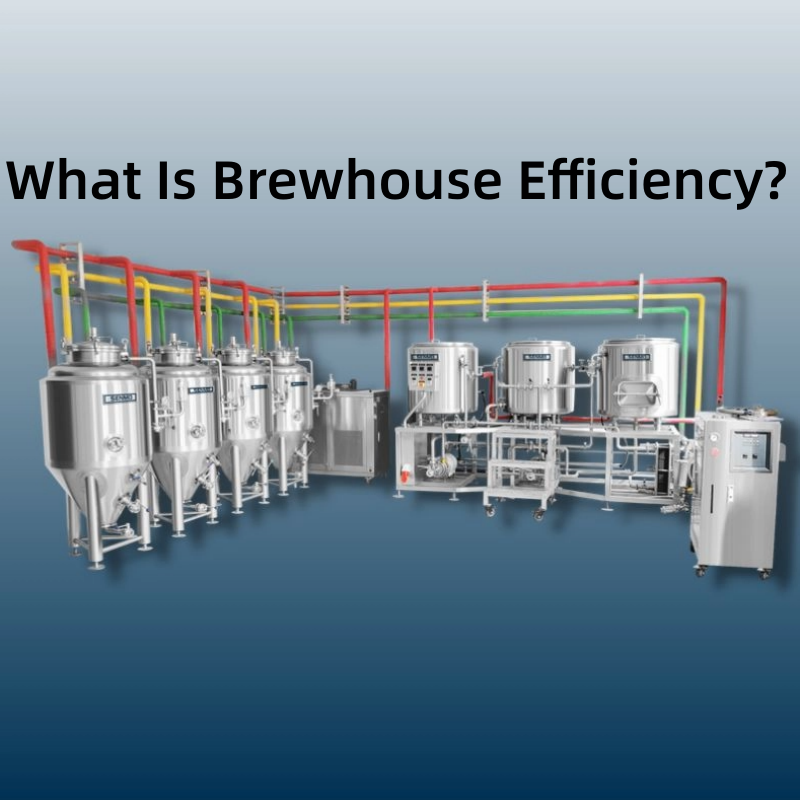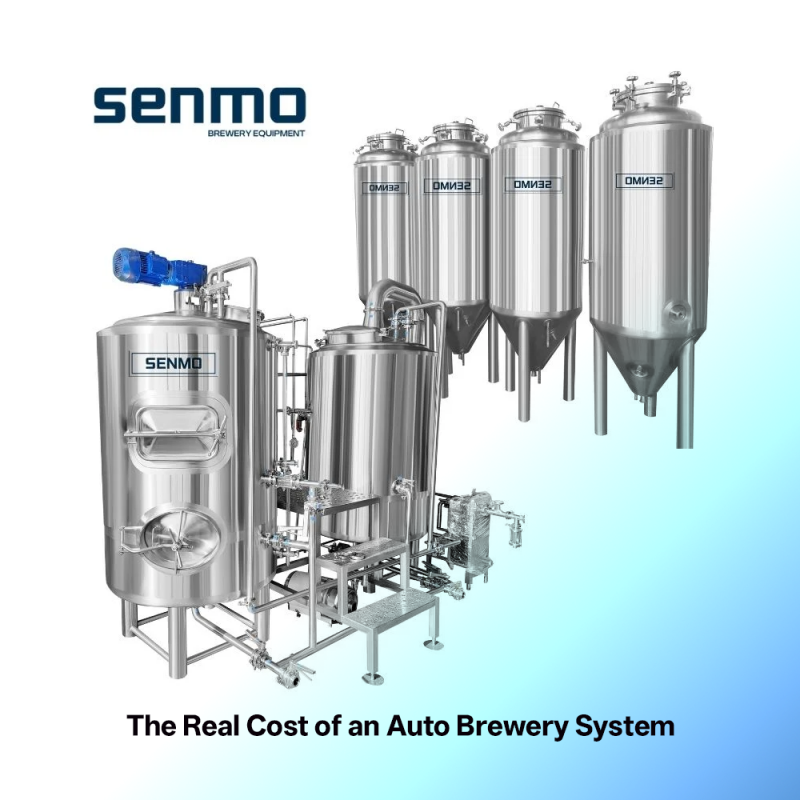The craft beer industry has seen a significant surge in popularity over the past decade, with more entrepreneurs and beer enthusiasts entering the market to create unique, high-quality brews. One of the essential pieces of equipment for any craft brewery is the brewing system, and for small to medium-sized operations, a 7 BBL (Barrel) brewing system is often the ideal choice. This article will explore the features, benefits, and considerations of a 7 BBL brewing system, helping you understand why it might be the perfect fit for your brewing needs.
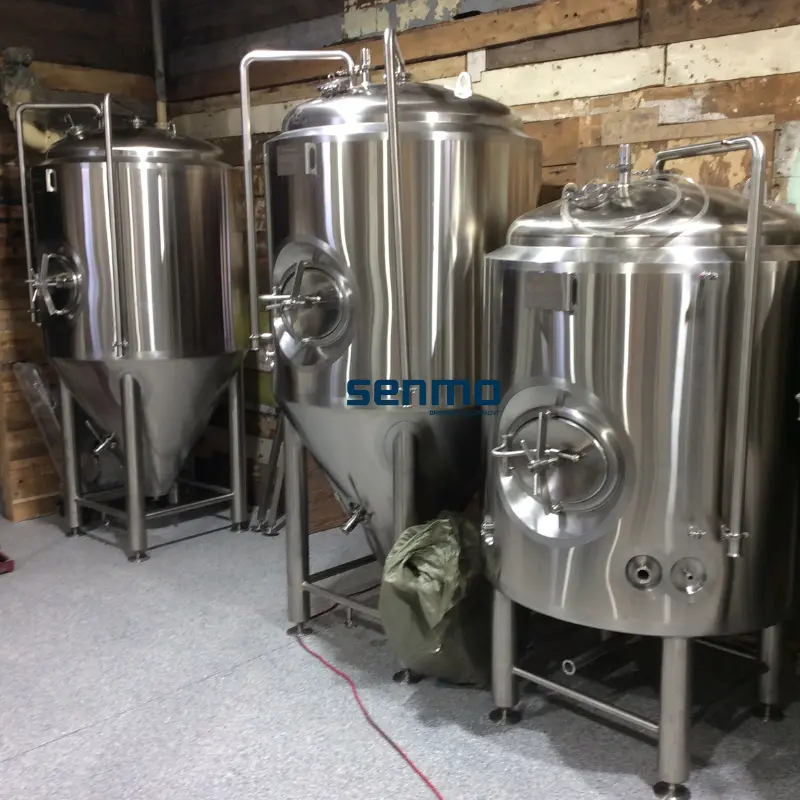
What is a 7 BBL Brewing System?
A 7 BBL brewing system refers to a brewing setup with a capacity of 7 barrels, where one barrel equals 31 gallons, or approximately 117 liters. Therefore, a 7 BBL system can brew up to 217 gallons, or around 820 liters, of beer per batch. This size is popular among craft breweries that produce beer for local distribution, taprooms, or smaller markets, offering a balance between production capacity and operational efficiency.
Here’s a detailed specifications table for a 7 BBL brewing system:
| Specification | Details |
|---|---|
| Capacity | 7 Barrels (BBL) – approximately 217 gallons or 820 liters |
| Brewhouse Configuration | 2-Vessel (Mash/Lauter Tun + Kettle/Whirlpool) or 3-Vessel (with separate Mash and Lauter Tuns) |
| Material | Stainless Steel (304 or 316) |
| Heating Method | Electric, Steam, or Direct Fire |
| Mash/Lauter Tun | - Volume: 8-9 BBL - Rake system with VFD control - False bottom design for effective lautering - Insulated vessel for temperature retention |
| Kettle/Whirlpool | - Volume: 8-9 BBL - Whirlpool tangential inlet - Steam jackets or electric elements for heating - Insulated vessel for energy efficiency |
| Fermentation Tanks | - Quantity: Typically 2-6 tanks - Volume: 7-14 BBL each - Temperature control with glycol jackets - Pressure relief valves and sample valves |
| Bright Beer Tank | - Volume: 7 BBL - Carbonation stone - Temperature-controlled with glycol jackets |
| Heat Exchanger | Plate heat exchanger for rapid wort cooling |
| Control Panel | - Semi-automatic or fully automated PLC control - Touchscreen interface - Temperature and pump controls |
| Pumps | - Wort pump: Stainless steel sanitary pump - CIP (Clean-In-Place) pump for cleaning processes |
| Glycol Chiller | Sized appropriately for the number of fermentation and bright tanks |
| Piping and Valves | - Sanitary tri-clamp fittings - Stainless steel piping |
| CIP System | Clean-In-Place system for automated cleaning of vessels and pipes |
| Hoses and Fittings | Sanitary-grade hoses and tri-clamp fittings for easy connection |
| Optional Equipment | - Grain mill - Keg washer/filler - Hop back or hop dosing equipment |
| Dimensions | Varies by configuration; typically requires a minimum of 150-200 sq. ft. |
| Power Requirements | - Electrical: 208-240V 3-phase for pumps and controls - Steam: Boiler required if using steam heating |
| Floor Drain | Recommended for brewhouse and fermentation areas |
| Warranty | Typically 1-2 years on major components |
This table provides a comprehensive overview of the typical specifications for a 7 BBL brewing system, covering the key components and features necessary for efficient and effective brewing operations.
Key Components of a 7 BBL Brewing System
A typical 7 BBL brewing system includes several key components, each designed to perform a specific function in the brewing process. These components work together to ensure that the brewing process is efficient, consistent, and scalable.
Mash/Lauter Tun
Function: The mash/lauter tun is where the mashing process occurs, where milled grains (usually malted barley) are mixed with hot water to convert the starches into fermentable sugars. The lauter process then separates the liquid wort from the grain husks.
Features: A 7 BBL mash/lauter tun is typically equipped with a false bottom, which helps in separating the wort from the grain. It may also have a rake system to improve lautering efficiency and prevent the grain bed from compacting.
Kettle/Whirlpool
Function: After lautering, the wort is transferred to the kettle for boiling. This step sterilizes the wort, halts enzymatic activity, and allows for the addition of hops. The whirlpool phase helps to separate the solid particles (trub) from the liquid.
Features: The kettle/whirlpool in a 7 BBL system usually includes steam jackets or electric elements for heating, a whirlpool inlet for effective separation, and insulation to maintain energy efficiency.
Fermentation Tanks
Function: Fermentation tanks are where the magic happens—yeast is added to the wort, and the sugars are converted into alcohol and CO2, creating beer.
Features: A 7 BBL system typically includes several fermentation tanks, often double the capacity of the brewing system, to allow for staggered production cycles. These tanks are equipped with glycol jackets for precise temperature control, ensuring consistent fermentation.
Bright Beer Tank
Function: After fermentation, beer is often transferred to a bright beer tank, where it undergoes conditioning and carbonation before packaging.
Features: Bright beer tanks in a 7 BBL system are usually equipped with carbonation stones and temperature control systems, allowing for precise adjustment of carbonation levels and maintaining beer clarity.
Heat Exchanger
Function: The heat exchanger rapidly cools the wort from boiling temperatures to a temperature suitable for fermentation, usually between 65-75°F (18-24°C).
Features: A plate heat exchanger is common in 7 BBL systems, designed to be efficient and compact, using cold water or glycol to quickly bring down the wort temperature.
Glycol Chiller
Function: The glycol chiller provides the cooling necessary for the fermentation tanks and bright beer tank, ensuring that the beer remains at the correct temperature throughout the fermentation and conditioning processes.
Features: The size of the glycol chiller is determined by the number of fermentation and bright tanks, ensuring it can handle the cooling load efficiently.
Control Panel
Function: The control panel is the central hub for managing the brewing process, allowing brewers to monitor and adjust temperatures, pump speeds, and other critical parameters.
Features: Many 7 BBL systems come with a semi-automatic or fully automated PLC control panel, often with a touchscreen interface for ease of use.
Benefits of a 7 BBL Brewing System
Choosing the right size brewing system is crucial for any brewery, and a 7 BBL system offers several distinct advantages, particularly for small to medium-sized operations.
Scalability
A 7 BBL system provides a balance between small-scale and large-scale production. It allows brewers to produce enough beer to supply taprooms, local bars, and small distribution networks without the overhead costs associated with larger systems.
Efficiency
The size of a 7 BBL system makes it efficient for producing a variety of beer styles, enabling brewers to experiment with different recipes and batch sizes. This flexibility is essential for craft breweries that need to keep up with market trends and customer preferences.
Cost-Effective
Compared to larger brewing systems, a 7 BBL setup is more affordable, both in terms of initial investment and operating costs. It requires less space, consumes less energy, and involves lower maintenance costs, making it an economical choice for emerging breweries.
Quality Control
With the right equipment and processes in place, a 7 BBL system allows for precise control over every aspect of the brewing process. This ensures that each batch of beer meets the desired quality standards, maintaining consistency across production runs.
Flexibility in Production
A 7 BBL system is ideal for breweries that want to offer a diverse range of products. The system's capacity is large enough to produce sufficient quantities for distribution, yet small enough to allow for frequent changes in recipes and styles.
Considerations When Choosing a 7 BBL Brewing System
While a 7 BBL brewing system offers many benefits, there are several factors to consider before making a purchase:
Space Requirements
Ensure that your brewery has sufficient space to accommodate a 7 BBL system, including room for fermentation tanks, a glycol chiller, and a control panel. Adequate floor drainage and ventilation are also essential for safe and efficient operation.
Power Supply
Depending on the heating method (electric, steam, or direct fire), the brewing system will require a specific power supply. Ensure that your facility can support the necessary electrical and steam requirements.
Production Goals
Consider your production goals when choosing a 7 BBL system. If you plan to scale up in the future, ensure that the system is modular or can be expanded with additional fermentation tanks or equipment.
Budget
While a 7 BBL system is more affordable than larger setups, it still represents a significant investment. Factor in the costs of installation, utilities, maintenance, and any additional equipment required to operate the system efficiently.
Supplier and Support
Choose a reputable supplier who offers comprehensive support, including installation, training, and after-sales service. A reliable partner can help ensure that your system runs smoothly and any issues are promptly addressed.
7 bbl brewing system cost
Here’s a table outlining the typical cost breakdown for a 7 BBL brewing system:
| Component | Estimated Cost Range | Details |
|---|---|---|
| Brewhouse (2-Vessel or 3-Vessel) | $50,000 - $100,000 USD | Includes Mash/Lauter Tun, Kettle/Whirlpool, piping, and basic control panel |
| Fermentation Tanks | $6,000 - $12,000 USD per tank | Typically 2-6 tanks; includes temperature control with glycol jackets |
| Bright Beer Tank | $8,000 - $15,000 USD | For carbonation and conditioning; with temperature control |
| Glycol Chiller | $10,000 - $20,000 USD | For cooling fermentation and bright tanks |
| Heat Exchanger | $3,000 - $6,000 USD | Plate heat exchanger for rapid wort cooling |
| Control Panel | $5,000 - $15,000 USD | Semi-automatic or fully automated PLC with touchscreen interface |
| Wort and CIP Pumps | $2,000 - $5,000 USD each | Stainless steel sanitary pumps for wort transfer and cleaning processes |
| CIP System | $5,000 - $10,000 USD | Automated Clean-In-Place system for cleaning vessels and pipes |
| Grain Mill (Optional) | $5,000 - $10,000 USD | For crushing grains prior to mashing |
| Keg Washer/Filler (Optional) | $10,000 - $20,000 USD | For washing and filling kegs for distribution |
| Piping and Valves | $5,000 - $10,000 USD | Stainless steel piping, tri-clamp fittings, and necessary valves |
| Installation Costs | $10,000 - $30,000 USD | Professional installation, including plumbing, electrical, and setup |
| Shipping Costs | $5,000 - $15,000 USD | Depending on the location and logistics requirements |
| Miscellaneous Costs | $5,000 - $10,000 USD | Includes floor drains, insulation, and other necessary accessories |
| Total Estimated Cost | $128,000 - $278,000 USD | Total cost range for a fully installed 7 BBL brewing system |
This table provides a general cost estimate for setting up a 7 BBL brewing system, including the main components, optional equipment, and installation. Costs can vary depending on the specific requirements, customization, and location of the brewery.
Conclusion
A 7 BBL brewing system is an excellent choice for craft breweries looking to balance production capacity with operational efficiency. It provides the scalability, flexibility, and quality control necessary for brewing a wide range of beer styles, making it a versatile and cost-effective solution for small to medium-sized operations.
Whether you're just starting out in the craft beer industry or looking to expand your current operations, a 7 BBL system offers the perfect blend of performance and practicality. By carefully considering your space, budget, and production goals, you can choose a system that meets your needs and supports the growth of your brewery. With the right equipment in place, you can focus on what matters most—creating great beer that your customers will love.
Senmo Machinery: Leading 7 BBL Brewing System Manufacturer
Senmo Machinery is a premier manufacturer of 7 BBL brewing systems, based in China. With their own state-of-the-art factory, Senmo Machinery specializes in providing customized brewing solutions tailored to meet the unique needs of craft breweries worldwide. Whether you’re looking for a standard setup or a fully customized system, Senmo Machinery offers high-quality, reliable brewing equipment designed to enhance your brewing operations.
